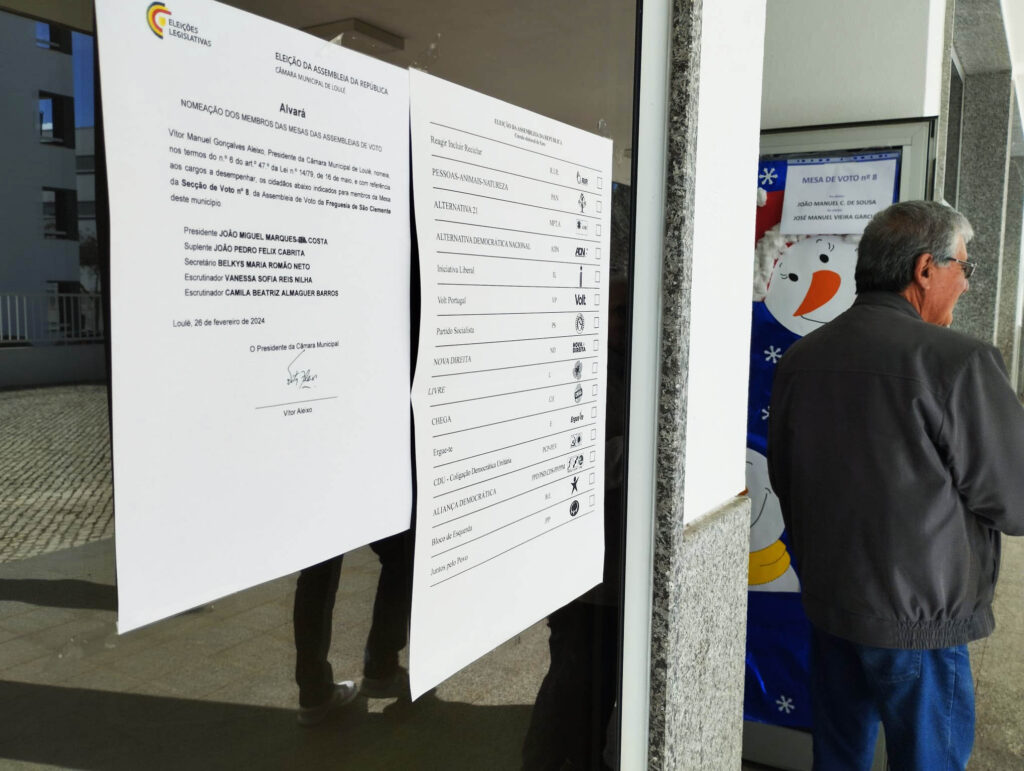About three years ago, regarding the 2021 presidential elections, on the now defunct blog and think tanks Algarve, Lugar ao Sul, I had the opportunity to write a text entitled “The protest of the forgotten”, which completed another, immediately previous, which I called “Not long, “this” will happen here, or the ecological flow in politics”.
In both, the reflection focused on the rise of populism as a symptom and not a cause, in the face of the entertainment of national elites in managing their interests and sectarian agendas, neglecting the Olympic minimums that guarantee people's daily lives the necessary dignity and hope in a better future.
The consequence? The breakdown of trust in democratic processes and institutions, along with things like science or facts, literally making everything count.
From that point on, those who witness the permanent breakdown of the social elevator, and find themselves inevitably pushed towards the stairs – or resigning themselves to never leaving the ground floor – sooner or later are predisposed to accept the ride. with any freight elevator operator waving at them, even if… nowhere.
Worse still, the eternal inhabitants of the ground floor of society may even one day accept the proposal, infinitely more daring, from some political thug with an open-top van and some shiny tools, to demolish the entire democratic edifice, for later (re )construction, now to the taste of the forgotten.
Which, obviously, will never happen, leaving everyone to live on the streets, exposed to the hardships of a political winter.
2021 thus represented a protest, which the 2022 legislative elections ended up not substantiating to the same extent. Even so, in these presidential elections, candidate André Ventura came in second place in most national districts (Faro included), even though their relative weight, in the national weighting, had placed it in third place in the general classification.
At that time, the map of Ventura's best results coincided, to a large extent, with the geography of the territory's vulnerabilities: unemployment, aging, social precariousness and dependency, as well as the distance to services of general interest, namely commercial or no, subject to specific public service and/or sovereign obligations (health services, compulsory education, employment and training services, social housing, nurseries, long-term care, social assistance services, public transport, security, justice, energy, communications, etc.). The minimum services of such dignity, if we want.
This characterization, although partial, fits like a glove on Portugal's disparities and lack of territorial cohesion, naturally reflected in its population.
We can believe a lot in coincidences. Or we can, faced with facts that give us concern, try to find their causes, instead of entertaining ourselves by cursing the foam of symptoms.
The growth of populism, which was unequivocally consolidated in last Sunday's elections, represents a communication to the oligarchies by the grassroots, the forgotten, those who are at the disadvantaged extremes of asymmetries, desperate and faced with the failure of all other channels and the deafening silence in response to their problems, along with the total ethical degradation of the regime.
It was precisely this that emerged from the shadow of abstention, making so many people regret regretting it in the past.
Responding to the moral emptying of politics, the distance between the interests of parties and the interests of people, with the feeling that the voice of citizens is ignored, that everything is decided at another level, where the disadvantaged are forgotten, where they group together those disenchanted and forgotten by the system that says it leaves no one behind.
Ecological flow is a concept applied to the management of water courses, as a general rule from the perspective of their damming at a given point, which aims to estimate the percentage of the average flow of that water course that must continue to flow freely, in order to guarantee the supply that safeguards the subsistence and protection of species and ecosystems downstream. If we want, what amount of water should run through the tap so that we can minimally quench our thirst?
In politics, we are slow to apply the same concept.
Populisms are difficult to deal with (inevitably, someone will bring up the paradox of tolerance, always important in this reflection), because the explosive mix of “truths” that galvanize the bases with the omissions that will create them in the future, is difficult to disarm .
The only effective way is to remove any basis of truth, eliminating any trace of legitimacy. In other words, like most excuses, they are avoided at the origin, rather than resolved. Because, we return to the same thing, they have to be understood and attacked in their causes, and not just in the symptoms.
Democracy is a dangerous game. But it remains, in fact, the best we have invented to date.
Now, the status quo he is free to do what he does best, devaluing that fact, belittling the voters he disagrees with. You are free to call them stupid, fascist, ignorant, anything and everything – including suggesting, in a deeply “democratic” spirit, that not everyone should be able to vote, almost in the style of the Roman electoral centuries.
It is free to maintain the same practices and the same protagonists, in the joyful conviction that mistakes always live in others, continuing with Pangloss' sweet optimism: “everything is for the best in the best of all possible worlds”.
Or you can choose to try something different, and listen.
Otherwise, bigger and worse surprises could be lurking.
Author Gonçalo Gomes is a landscape architect, president of the Algarve Regional Section of the Portuguese Association of Landscape Architects (APAP).
(and writes according to the old Spelling Agreement)



















Comments